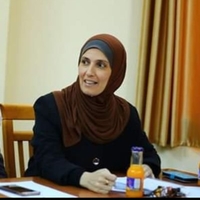- Niveen Elshawa is an assistant professor of Applied Linguistics from Gaza, Palestine. She obtained her PhD from Universiti Putra Malaysia with distinction. Her main research interests are: English Language assessment, feedback in HE, TEFL and e-learning.edit
Research Interests:
Language assessment can be a valuable tool for giving information regarding language teaching. Given the importance of assessment that has undergone much change, there are important issues that warrant investigation, particularly those... more
Language assessment can be a valuable tool for giving information regarding language teaching. Given the importance of assessment that has undergone much change, there are important issues that warrant investigation, particularly those related to language instructors. The main objectives of the study were to investigate the English language instructors’ beliefs about assessment, the assessment practices that English language instructors use in assessing students’ work and the extent to which language instructors' assessment beliefs correspond to their practices. Differences in the assessment beliefs/practices of the English language instructors in terms of TESL qualifications, years of work experience, number of courses taught per week and source of prior assessment training were also investigated.This study employed an explanatory sequential quantitative driven design. In this design, the researcher collected data through two questionnaires and a semistructured interview from s...
Research Interests:
Assessment literacy, as a term, is not well known in the educational field. This is unfortunate because teachers' assessment knowledge and competence can have an important influence on the way they teach and the way their students... more
Assessment literacy, as a term, is not well known in the educational field. This is unfortunate because teachers' assessment knowledge and competence can have an important influence on the way they teach and the way their students learn. The relationship between the degree of assessment literacy a teacher has and the washback of this type of assessment is not clearly identified, especially in higher education context. In view of this gap, this article attempts to examine important assessment literacy issues in relation to student learning: definition and importance of assessment literacy, assessment in higher education and assessment practices through reviewing related studies. The review pinpoints the harmful effects of being assessment illiterate for both teachers and students.
